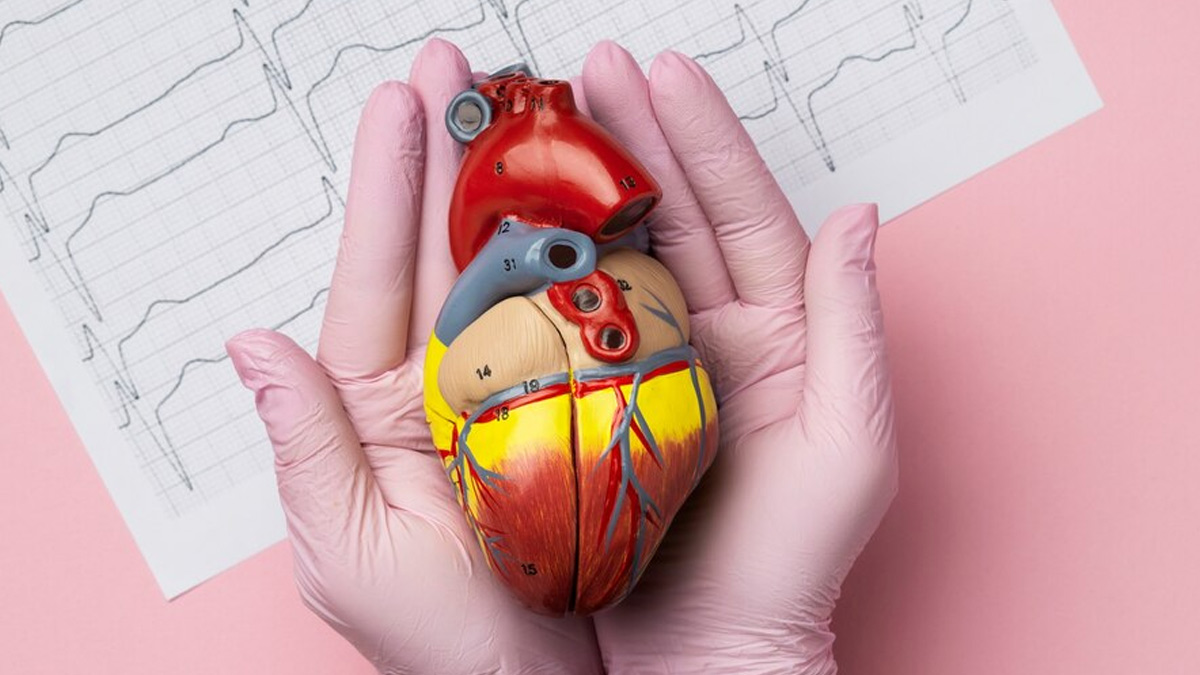
Ageing is a natural process that involves physical, mental, and social changes. But were you aware of your heart ageing? Heart ageing is a natural process that affects everyone, but the extent to which it impacts an individual's health can be mitigated through comprehensive lifestyle changes and advanced medical interventions. We spoke to our expert Dr Bimal Chhajer, Former Consultant, AIIMS and Director, SAAOL Heart Centre, New Delhi, who explained the impact of heart ageing and how to reverse it.
Table of Content:-
Impact Of Heart Ageing

Heart ageing involves a gradual decline in the efficiency and function of the heart. As we age, the heart muscles may weaken, arteries can become less flexible, and the risk of cardiovascular diseases may increase. Factors, such as genetics, lifestyle choices, and environmental influences play crucial roles in determining the rate at which the heart ages.
According to Public Health Reports, heart age is another technique to communicate Cardiovascular Disease risk. It is described as the anticipated age of an individual's vascular system according to their profile of CVD risk factors.
According to the National Institute on Aging, people who are 65 and above have a significantly higher risk than younger individuals of having a heart attack, stroke, coronary heart disease, or heart failure. Not only this, Many older people suffer from heart disease, which limits their activity and erodes their quality of life.
Also Read: Chia Seeds For Cholesterol: Expert Explains How It Can Lower Cholesterol And Improve Heart Health
How To Reverse Heart Ageing And Keep Your Heart Healthy

The average maximal heart rate in your 20s is 200 beats per minute, but as you age, this decreases. 70-year-olds have an average maximal heart rate of 150, as stated by the American Heart Association.
By understanding the impact of heart ageing and adopting effective reversal strategies, you can take charge of their heart health. Dr Chhajer listed measures to keep your heart healthy as follows:
Lifestyle Modifications
One of the most effective ways to reverse the impact of heart ageing is through comprehensive lifestyle changes.
Dr Chhajer highlighted, “Adopting a heart-healthy diet, engaging in regular physical activity, and managing stress are key components of this approach. A diet rich in fruits, vegetables, whole grains, and lean proteins provides essential nutrients that support heart health.” Regular exercise helps maintain cardiovascular fitness, while stress management techniques, such as meditation or deep breathing exercises, contribute to overall well-being.
Also Read: Impact Of Stress On Heart Health: Expert Explains How Stress Affects Your Heart
Innovative Approaches to Reversal
In recent years, medical professionals have adopted innovative strategies to reverse the impact of heart ageing. “Personalised treatment plans tailored to an individual's unique genetic makeup and lifestyle factors by integrating artificial intelligence and advanced medical technologies can help in keeping with your heart health”, said Dr Chhajer. This personalised approach enhances the effectiveness of interventions, optimising outcomes for patients.

Plant-Based Diets and Antioxidants
Dr Chhajer added, “Plant-based diets are rich in antioxidants, which help combat oxidative stress, which is a major contributor to heart ageing. Foods like berries, nuts, and leafy greens provide a powerful arsenal of antioxidants that support the rejuvenation of the heart.”
[Disclaimer: This article contains information provided by a registered healthcare professional and is for informational purposes only. Hence, we advise you to consult your expert if you notice any symptoms of heart problems for early treatment.]
Also watch this video
How we keep this article up to date:
We work with experts and keep a close eye on the latest in health and wellness. Whenever there is a new research or helpful information, we update our articles with accurate and useful advice.
Current Version